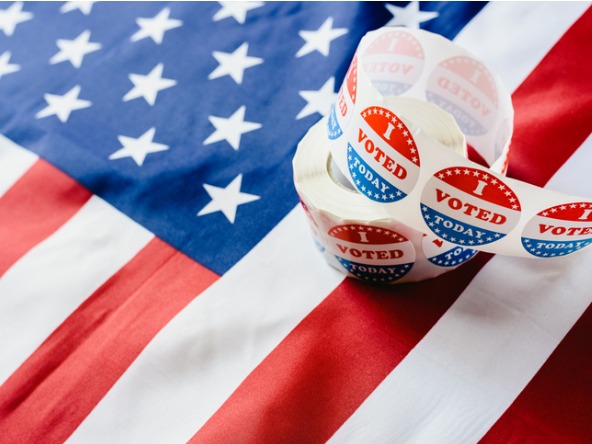Liberal US voters ‘overrepresented’ in surveys

Data for Progress also found that conservative white voters were opting out of polling, while liberal activists were “systematically overrepresented” in surveys.
The findings are based on analysis of its performance in polling 15 states before the November 2020 US general election, which saw Joe Biden win the presidency.
Data for Progress said that Democrats responded to polls at much higher rates than the general population, “so highly partisan liberals make up a larger proportion of respondents than they do in the general electorate”.
Conversely, low rates of response from Republicans meant that “extreme and moderate conservatives make up a smaller proportion of respondents than they do in the general electorate”.
Some conservatives were so passionate about not participating, they texted pollsters back declaring their opposition, Data for Progress said.
The analysis also found that the areas which had the strongest turnout for Donald Trump at the last election were less likely to respond to polls even when firms control for their partisanship and other demographics.
The company said that it had therefore found that grouping respondents as ‘white college’ or ‘white non-college’ was “no longer enough to capture the nuances of their voting behaviour” due to the amount of variation within these groups.
Data for Progress also found Biden overperformed house Democratic candidates in heavily white suburban and urban counties, but underperformed them in majority non-white rural counties.
Following the analysis, Data for Progress said it would improving its weighting using local characteristics based on trusted public data sources including census response rates, economic and employment indicators, and proxies for social trust.
Data for Progress will also set up a zip code weighting scheme, which combines characteristics of respondents with those of their local geography.
“In fact, retroactively applying these weights to our 2020 pre-election surveys, we see that our new weighting techniques would have significantly decreased polling error,” Data for Progress said in its analysis.

We hope you enjoyed this article.
Research Live is published by MRS.
The Market Research Society (MRS) exists to promote and protect the research sector, showcasing how research delivers impact for businesses and government.
Members of MRS enjoy many benefits including tailoured policy guidance, discounts on training and conferences, and access to member-only content.
For example, there's an archive of winning case studies from over a decade of MRS Awards.
Find out more about the benefits of joining MRS here.













0 Comments